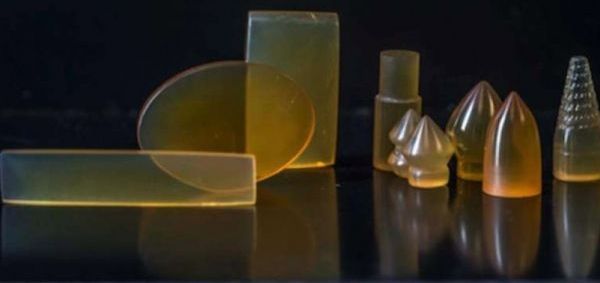In Brief
- Researchers have created a 3D bulk material from silk fibroin that can be programmed to activate specific tasks when exposed to conditions like temperature or infrared light.
- The material could be used to create everything from hormone-emitting orthopedics to surgical pins that change color when they near their mechanical limits.
Engineers from Tufts University have just created a new, versatile material that could be optimized for a number of purposes, particularly within the medical field. The material was constructed out of special proteins called silk fibroins, and it can be programmed for specific biological, chemical, or mechanical tasks. The study was published online in Proceedings of the National Academy of Sciences (PNAS).
The team used water-based fabrication methods inspired by protein self-assembly to produce 3D bulk materials from silk fibroin. Fibroin, the structural protein that gives silk its durability, was chosen because it allowed for the easiest manipulation of the resulting substance’s form, as well as smoother modification of function. It’s also completely biodegradable.
